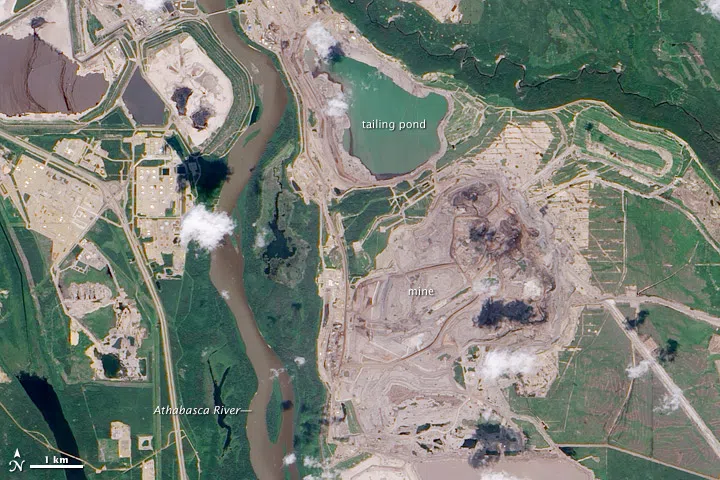
By NASA Earth Observatory - http://earthobservatory.nasa.gov/IOTD/view.php?id=40997, Public Domain
Alberta researcher develops next-generation water filters for oil sands and rural communities
EDMONTON, AB — Water is essential to life in Alberta, powering homes, industry and the province’s energy sector. But ensuring that water stays clean is a complex challenge — one that a University of Alberta researcher has spent more than a decade trying to solve.
Mohtada Sadrzadeh, a professor in the Department of Mechanical Engineering and principal investigator of the Advanced Water Research Lab, has been working for the past fifteen years to improve water filtration methods. His research spans two critical areas: supporting the oil sands industry and improving drinking water access in rural communities.
Sadrzadeh began his academic career in Iran, where he earned a PhD in engineering, before arriving at the University of Alberta as a postdoctoral fellow. Since 2014, he has collaborated with Alberta Innovates to develop technologies that improve how water is filtered in steam-assisted gravity drainage operations used in bitumen extraction.
In these operations, steam is injected deep underground to loosen heavy oil so it can be pumped to the surface. Each barrel of oil requires roughly one barrel of water, most of which is recycled. However, residual impurities in the recycled water can damage equipment and lead to shutdowns.
“Conventional methods of recycling water are challenging because we cannot remove all the organic and inorganic particles,” said Sadrzadeh. “This causes fouling of the steam generators, so they must shut down and repair these facilities more frequently.”
To address the issue, his research team developed a high-performance filtration membrane that removes more contaminants than traditional systems. The team also designed the world’s first membrane capable of withstanding extreme heat, allowing it to filter water immediately after extraction without the need for cooling. This innovation improves energy efficiency and reduces greenhouse gas emissions by making it possible to switch to more efficient drum boilers.
Sadrzadeh’s work has also turned toward solving persistent drinking water challenges in rural, remote and Indigenous communities. These areas often lack reliable access to clean water and electricity, limiting the use of conventional filtration systems.
To respond to this, his team is developing a gravity-assisted membrane system that does not require power. In the prototype, pre-treated water is stored three metres above the membrane. Gravity pulls the water through, removing harmful pathogens and other contaminants.
“There is currently no gravity-driven membrane available on the market,” said Sadrzadeh. “This will be the first of its kind, and we are working to make it resistant to fouling so it can last longer and reduce maintenance.”
In 2024, he launched a startup, Greenvi, aimed at developing microfilters made from biodegradable biopolymers. Sadrzadeh said current microfilters typically last three to five years and are then discarded. His goal is to reduce the environmental footprint of water treatment technology.
“We don’t want secondary waste,” he said. “So we’re working on a biodegradable filter.”
Sadrzadeh’s team is now testing filters in both laboratory and real-world settings. The next step will be working with manufacturers to scale up and commercialize the technology.
“We are now making filter membranes at the scale that can be tested and validated in a real water treatment plant,” he said. “That’s what motivates me — taking an idea from the lab to something that consumers can actually use.”


Comments